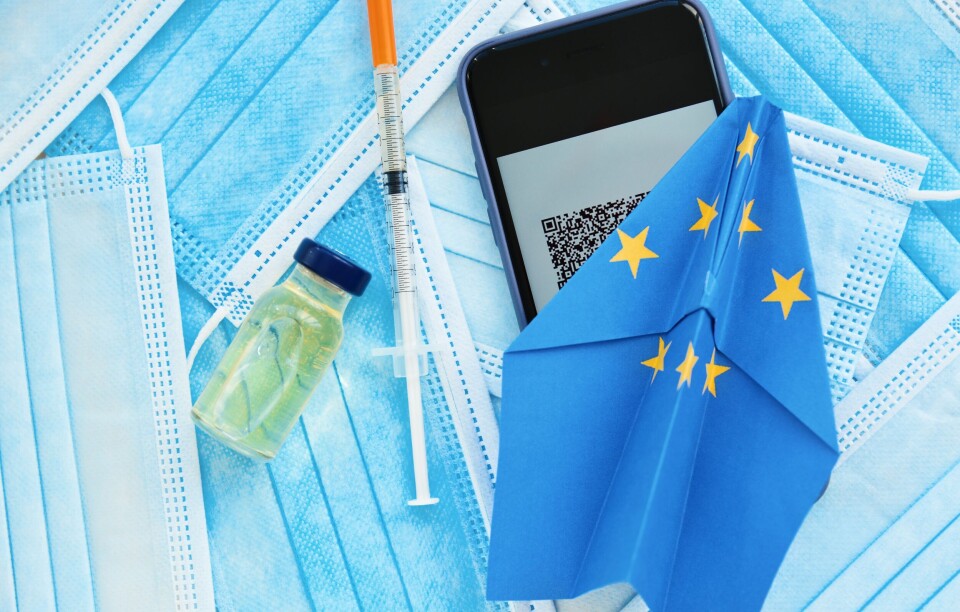-
The curious case of Good Friday: Why only some parts of France get the day off
Three French departments benefit from two extra public holidays
-
How long does it take to sell property in different areas of France? New study
Many major cities are showing signs of recovery when it comes to supply, demand, prices, and time to sell
-
Map: Car insurance costs rise in France - see the average in your region
Multiple studies show that costs are rising by around 5% year-on-year, with major differences by region and vehicle model
Booster Covid dose needed for travel within EU from February 1
The EU is changing the conditions for its Digital Covid Certificate

A Covid vaccine booster shot - received at most nine months after your second or only (in the case of Johnson & Johnson) vaccination - will be required to maintain easy travel within the EU from February 1.
The rule updates the EU’s Digital Covid Certificate (DCC) scheme, which seeks to harmonise Covid travel restrictions around the bloc.
It means that people who want to travel within the EU and avoid heavier restrictions (such as quarantines), will have to get a booster dose within nine months of their previous jab to do so, unless they take a pre-departure Covid test.
An EU Digital Covid Certificate is proof of being fully vaccinated with a vaccine approved by the European Medicines Agency (EMA), proof of a negative Covid test (PCR tests valid for 72 hours and antigen tests valid for 48 hours), or proof of having recovered from Covid.
Any Covid vaccine or test certificate issued in France is valid both as part of France’s health pass scheme and the EU’s Digital Covid Certificate scheme.
Read more:Can I use my French health pass to travel abroad?
The EU announced the update to the rules on December 21. The French Health Ministry confirmed to The Connexion that the change will apply from February 1.
A statement from the European Commission states:
“The validity period of nine months takes into account the guidance of the European Centre for Disease Prevention and Control, according to which booster doses are recommended at the latest six months after the completion of the first vaccination cycle.
“The Certificate will remain valid for a grace period of an additional three months beyond those six months to ensure that national vaccination campaigns can adjust and citizens will have access to booster doses.”
A spokesperson for the European Commission told The Connexion that it will regularly re-evaluate the “approach regarding the acceptance period” of the DCCs in relation to booster doses, based on emerging scientific evidence.
The DCCs will be updated to record booster doses in the following way:
- They will show 3/3 for a booster dose given after a person has received two doses of a dose-vaccine (Pfizer-BioNTech, Moderna, AstraZeneca, etc.)
- They will show 2/1 for a booster dose given after a person has received a single-dose vaccine (Johnson & Johnson), or after a person has had one vaccine dose after having had Covid
The Connexion asked the Commission for clarification on how this rule will affect children and was informed that there are currently no recommendations from the EMA to administer booster doses to persons below the age of 18.
This suggests that minors will not have to have a booster for their vaccination certificates to remain a valid part of the DCCs from February 1.
France is only offering booster shots to people aged 18 and over, except in some circumstances for children at risk of serious forms of Covid.
European member states have agreed that under 18s travelling in the EU with their parents should be exempt from quarantine if their parents are (i.e. if their parents are fully vaccinated).
Additionally, children under 12 should be exempt from travel-related testing, the EU Commission states.
In a separate update, the European Commission has encouraged member states to accept travellers vaccinated with WHO-approved vaccines beginning January 10. There is a pdf of these here.
Related articles
WHO-approved vaccines now OK for French health pass on two conditions
EU's health pass aims to crack down on fake Covid certificates
























